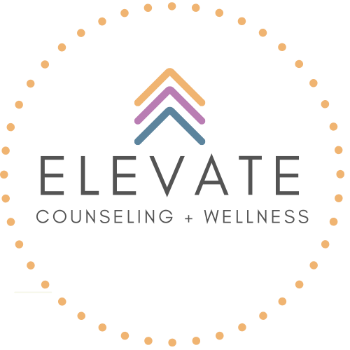Although we all love a beautiful love story, we're fully aware of the harrowing statistics. Research estimates that about half of all first marriages end in divorce. And while most people don’t enter matrimony with the intention of splitting, life throws inevitable curveballs that can challenge even the most resilient people.
Have you been questioning whether you’re happy in your marriage? Do you and your spouse continue running into the same, frustrating issues? Are you wondering if there’s more to life - more to your sanity - than this relationship?
Divorce counseling can help you move beyond this puzzling crossroads. Additionally, it can offer support if you’ve decided to move forward with the divorce. Let’s get into what you should know.
What Is Divorce Counseling?
Most people have heard of marriage counseling, which aims to help couples foster a healthier and stronger relationship. Divorce counseling, on the other hand, can be a valuable resource for couples who have already committed to going their separate ways.
There’s no doubt that divorce is stressful. According to the Holmes-Rahe Life Stress Inventory, which measures the most stressful events in life, divorce ranks second - just behind the death of a spouse. Divorce can threaten everything you know - your sense of self and identity, your home, your financial security and even your social circle. It can be a terrifying, confusing and isolating experience.
Divorce counseling aims to mitigate some of this excess stress. Your therapist can provide support for all the emotional and logistical changes you will inevitably experience.
If you attend with your partner, you can expect an unbiased approach. Rest assured that your therapist won’t try to reunify you back together, that's not the goal of divorce counseling. Instead, your therapist will work with both of you to create common ground and establish new roles and rules for moving forward.
Do You Need To Go With Your Partner?
No, you don’t need to seek counseling with your spouse. Sometimes, the other person isn’t willing to attend. Other times, the relationship has become so volatile and abusive that the communication is best handled through attorneys.
Regardless, you can still benefit from the virtues of counseling without your partner. In contemplating or seeking divorce, you are likely experiencing several profound changes. Your world may feel unsteady, and it’s normal to feel depressed and anxious.
You may have close friends and family, but loved ones can be notorious for providing unhelpful feedback during this time. They may not know the right thing to say, and the wrong words - even if they are unintentional - can feel hurtful and demoralizing. Additionally, you may be struggling with feeling like your support system needs to “pick a side.”
Having an unbiased, professional approach can help in the ways loved ones often can’t. The goal of divorce counseling is to help you deal with the issues at hand so you can move forward in a healthy way. Some of the common issues that get worked through are:
-
Infidelity
-
Complications with family dynamics (including with children)
-
Financial stress and uncertainty
-
Situational depression and anxiety
-
Relocation considerations
-
Finding and establishing a healthy support system
-
Identifying and implementing appropriate boundaries
- Dating and new relationships
-
Self-esteem and other identity concerns
Other Benefits of Divorce Counseling
Divorce counseling provides a neutral and nonjudgmental space for coping with this new transition. Even couples who vow to part their ways amicably often find themselves in ‘battle mode’ once the premise of divorce is on the horizon.
Unfortunately, this battle mode can be physically, emotionally, and financially draining. Counseling can help both parties learn how to process and unleash their emotions productively. You both can learn how to deal with your stress, and you both can engage in healthy communication - even if you don’t particularly like each other anymore!
Both of you will need to identify goals for moving forward. You will need to reestablish a new “sense of normal.” Likewise, if children are involved, learning how to co-parent benefits everyone in your family.
Of course, all of this can feel frightening. Maybe you weren’t the one who initiated the separation, and perhaps, you aren’t just ready to move on. Counseling can help you navigate these painful and challenging feelings. Counseling can offer you a supportive space to explore your feelings, share your fears, and learn new ways of coping - whether you decide to engage in divorce counseling together or on your own.
Final Thoughts
Marriage is complicated, and divorce undoubtedly can be even more complex. Divorce counseling can reduce some of the burden both partners experience during this trying time. You don’t need to suffer alone, and you don’t need to accept the notion that divorce, and life after divorce, “needs” to be this terrible, awful, drawn-out process.

